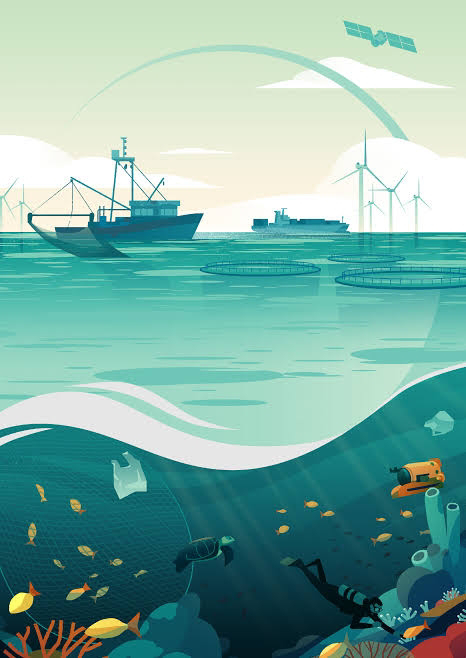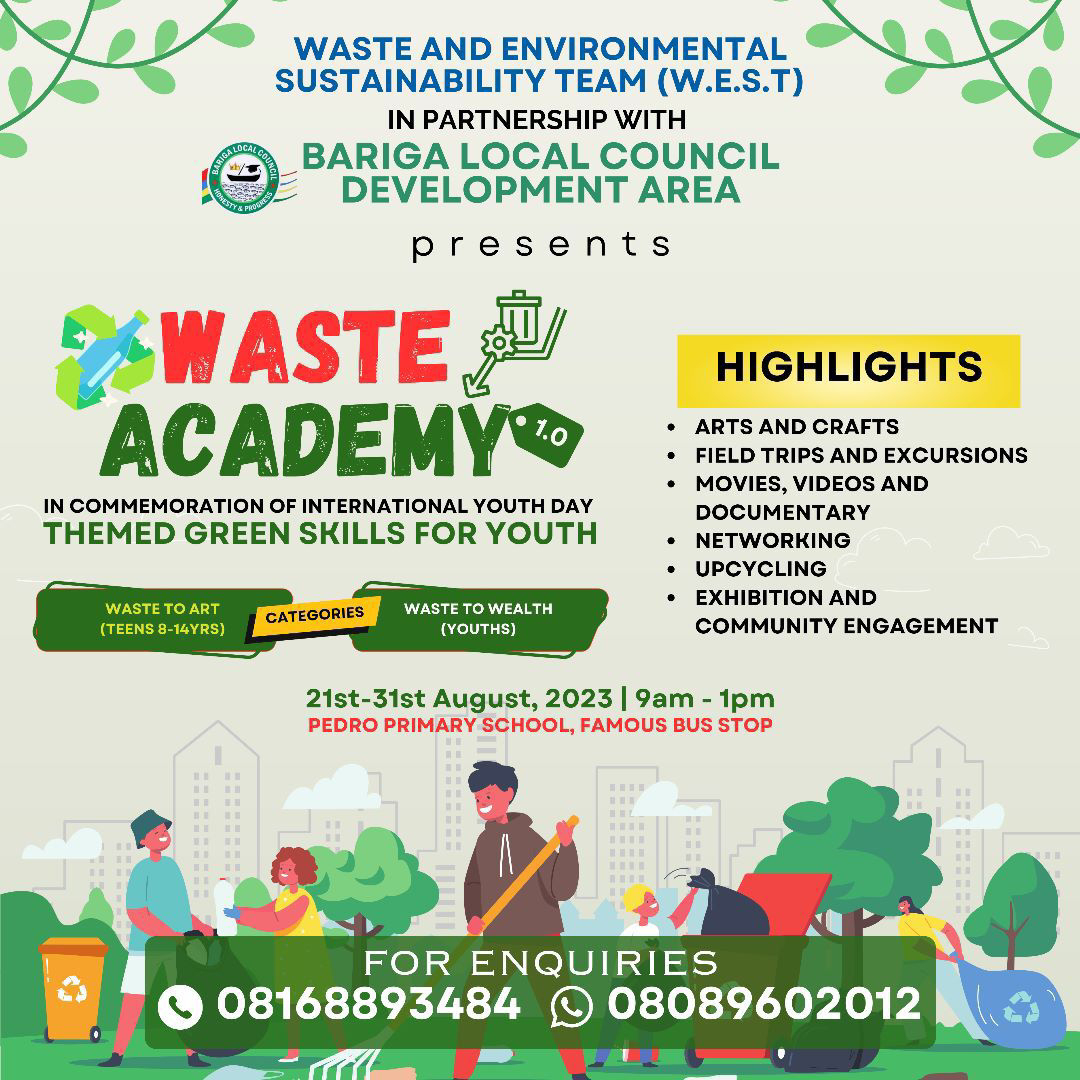EMPOWERING YOUTH IN COMBATING GLOBAL WARMING AND ACHIEVING SUSTAINABLE DEVELOPMENT GOALS
Abdulquadir Iyanda Jimoh
Global warming is an imminent threat demanding immediate action from all sectors of society. With the future at stake, it is crucial to involve and empower young people in combating climate change and contributing to sustainable development. By harnessing the energy, innovation, and passion of the youth, we can accelerate efforts to mitigate the adverse effects of global warming and achieve the United Nations' Sustainable Development Goals (SDGs).
Education and Awareness: Creating awareness among young people about the science and consequences of climate change is a fundamental step towards sustainable development. Governments, educational institutions, and non-profit organizations should prioritize climate change education in school curricula, emphasizing the importance of sustainable practices and providing young minds with the knowledge required to make informed decisions. By organizing workshops, seminars, and awareness campaigns, young people can be equipped with the tools necessary to actively participate in climate action.
Advocacy and Civic Engagement: Youth involvement in advocacy efforts is essential to drive policy changes and demand sustainable solutions from governments and corporations. Young activists all around the world, inspired by leaders like Greta Thunberg, have taken to the streets to voice their concerns about climate change. Harnessing the power of social media, they have successfully raised awareness and influenced public opinion on the urgency of climate action. By joining youth-led organizations, participating in peaceful protests, and engaging in policy dialogues, young people can effectively advocate for sustainable development goals.
Innovation and Entrepreneurship: Youth innovation can play a pivotal role in developing sustainable solutions and technologies to combat global warming. For instance, renewable energy sources, such as solar and wind power, can offer alternative options to traditional fossil fuels. Governments and private entities should promote innovation competitions, grants, and mentorship programs that encourage young aspiring entrepreneurs to design and implement eco-friendly solutions. By embracing entrepreneurship and innovation, youth can become active contributors to the sustainable development agenda.
Consumer Choices and Lifestyle Changes: Young people have enormous power as consumers. By making sustainable choices and adopting eco-friendly practices in their daily lives, they can significantly reduce their carbon footprint and contribute to a greener future. Simple yet impactful actions like conserving energy, minimizing food waste, choosing public transportation or biking, practicing recycling and upcycling, and supporting local and eco-friendly products can collectively make a considerable difference. Young consumers can also hold companies accountable by choosing environmentally conscious brands and demanding sustainable practices from the products and services they consume.
Collaboration and Partnership: The fight against global warming and the achievement of SDGs require multi-stakeholder collaboration. Governments, businesses, civil society organizations, and youth-led groups need to work together to address the complex challenges posed by climate change. Young people should actively seek partnerships and collaborations with various stakeholders, leveraging their unique perspectives and creativity. Only by collectively working towards common goals can we effectively mitigate global warming and achieve sustainable development.
Raising a concrete awareness: Youth can play a key role in spreading awareness and advocating for the importance of achieving sustainable development goals (SDGs) in their communities and beyond. They can use social media, organize events, and engage in discussions to raise awareness about the SDGs.
Volunteerism and community engagement: Youth can actively engage in community service and volunteer activities that contribute to sustainable development. They can participate in clean-up drives, tree planting campaigns, conservation projects, and other community-based initiatives.
Policy advocacy and participation: Youth can engage in policy discussions and decision-making processes to influence government policies and frameworks related to sustainable development. They can join youth organizations, attend public consultations, and actively participate in policy-making platforms.
Youth-led initiatives and projects: Youth can take the lead in establishing their own projects and initiatives that address specific SDGs. They can create youth-led organizations, clubs, or networks that focus on sustainable development issues and work towards achieving tangible results.
Research and data collection: Youth can contribute to research efforts and data collection related to sustainable development. They can conduct studies, surveys, and assessments to gather empirical evidence and to understand the socio-economic and environmental aspects of various SDGs.
Empowering youth is not just an option; it is an imperative in the battle against global warming. By providing education, fostering advocacy, nurturing innovation, making sustainable choices, and promoting collaboration, young people can significantly contribute to the achievement of sustainable development goals. Their energy, enthusiasm, and fresh ideas can create a transformative impact, ensuring a more sustainable and resilient future for our planet. Let us join hands and encourage the youth to step forward and become leaders in the fight against climate change.
#GlobalWarming, #SustainableDevelopmentGoals, #YouthEmpowerment, #ClimateChangeEducation, #Advocacy, #Innovation, #Entrepreneurship, #ConsumerChoices, #Collaboration, #YouthLedInitiatives.





Comments
Post a Comment